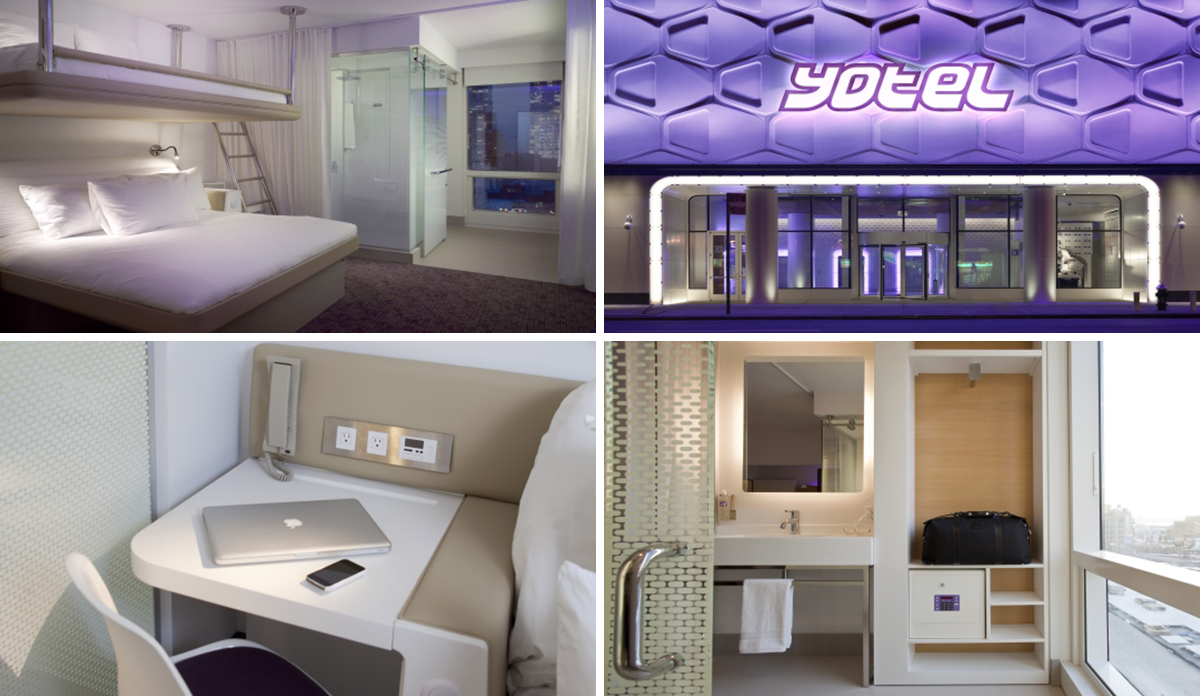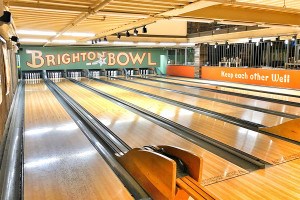Why a Yotel Is Perfect for the Innovation District

Yotel already has locations in New York (shown here), London, and Amsterdam. / Photos via Yotel.com
The Globe reported earlier this week that John B. Hynes III wants to build a Yotel, a “micro-hotel” with small-size rooms built for efficiency, in Boston’s Innovation District. The proposed 307-room Yotel would be built along Seaport Boulevard across from the Moakley Courthouse.
The idea of a Yotel is both perfect and disappointing. The micro-hotel chain, which already has locations in New York, London, and Amsterdam, was inspired by luxury airline travel and Japanese influence. The super-compact “cabins” range from 160 to 200 square feet and cost a fair amount less than other area hotels. While would-be Boston rates are still unknown, a Yotel room at the Times Square location in New York goes for $250 a night.
But let’s be honest—the Innovation District, unlike Times Square in New York, is not the most booming (or even particularly accessible) of destinations.
Weekend tourists and conference-goers walk around the semi-desolate area, eat at the Barking Crab, go to their convention at the BCEC, and leave knowing that they experienced the core essence of our city…not.
Sure, the area has its highlights: there are plenty of great bars and restaurants—Sportello, Blue Dragon, and Row 34, just to name a few—the ICA is a shiny museum with rotating exhibits, and between the BCEC, World Trade Center, Pavilion, and other venues, there’s always something happening in the Innovation District. In other words, the Seaport is a great place to play.
But the location is one of the least convenient neighborhoods around. Convenience stores are few and far between, and an everyday grocery store? Nope. Bee’s Knees Supply Company is a top specialty market, but you won’t find any Shaws, Whole Foods, Trader Joe’s, or CVSes here.
The need for a Yotel highlights both the benefits and core problems with the Innovation District. Restaurants, event venues, and conferences and conventions make the area a hotspot for visitors fleeting in and out for business or event-specific reasons. But those who don’t venture past Fort Point Channel depart with a narrow view of what Boston has to offer. What parks? What campuses? What shopping? What churches, Charles, or even Chinatown?
In the end, it comes down to preference. For the frequent flyer coming to town on business, perhaps experiencing a wider scope of Boston’s culture isn’t a priority. In that case, a Yotel would be a perfect cheap alternative to other hotels at the Seaport like The Westin, where rooms go for at least $300.
But for families and groups seeking a mix of cultural experiences—well, there’s just something special about being able to walk five minutes and find yourself at the Public Garden.


